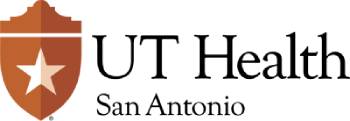
When a Food and Drug Administration advisory committee in April unanimously approved the first cannabidiol (CBD) medicine for prescription use in epilepsy, it based its decision partly on recommendations of Jose E. Cavazos, M.D., Ph.D., professor of neurology and physiology at UT Health San Antonio.
“I was asked to evaluate the scientific credibility of the evidence—whether there was sufficient research data—to recommend approval of this drug to treat Lennox-Gastaut and Dravet syndromes, which are two types of catastrophic epilepsy,” he said. The syndromes produce multiple seizures daily and treatment options are limited.
CBD is derived from the Cannabis sativa plant, famous as the source of marijuana. CBD is a non-addictive component of the plant, in contrast to tetrahydrocannabinol (THC), which is a component that produces the high of marijuana and is addictive.
The drug, sold under the brand name Epidiolex, is a proprietary oral solution of plant-derived CBD that contains less than 0.1 percent THC and does not produce euphoric effects. Clinical trials indicate the medication can decrease the frequency of “drop attacks” and other symptoms of Lennox-Gastaut. In these attacks, a person suddenly stiffens and falls with the head facing forward. Children with Lennox-Gastaut may wear helmets to prevent head injuries.
Controlled CBD use has been legal in Texas since 2015, when lawmakers passed the Texas Compassionate Use Act. CBD oil dispensaries allow families of children with epilepsy to obtain the oil with physician authorization, but it is a lower dose than the pharmaceutical-grade CBD and is not covered by insurance.
Linda Leary, M.D., clinical associate professor of neurology and pediatrics, said physicians at UT Health San Antonio will assist families who want to try CBD in their children with difficult-to-control epilepsy.
“One reason we are willing to do this is that at least we can help families to use it safely,” Dr. Leary said. “CBD is not viewed as a miracle, but is one more medication that could work to control seizures.”
The FDA decision affects insurance status and provides safety guidelines and dosing instructions.
